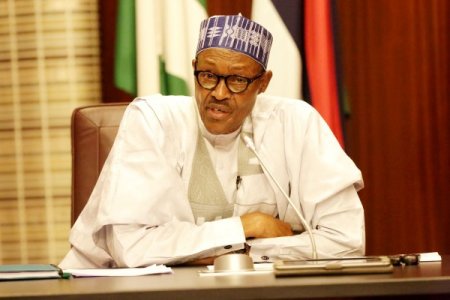This post has already been read 7015 times!
By Punch Editorial
RECENT developments portend scant optimism for Nigeria achieving significant economic recovery very soon. A report of second quarter growth of 0.55 per cent, reversing five consecutive quarters of contraction, collided with continued depression of international oil prices, high unemployment, collapsing infrastructure and visibly saner policies in peer countries. To avoid disaster, President Muhammadu Buhari should empanel a robust economic team and take the necessary policy measures to reboot the economy.
Severe stress in the socio-economic environment accentuates the urgency of the moment. Crime is rising everywhere just as dissident groups are threatening the fragile foundations of the state; vandalism in the Niger Delta region is once again putting the seamless flow of oil and foreign earnings at risk; ethnic nationality rivalries and contest for power and economic access have given way increasingly to hostility, while federal functionaries, including the President, are losing touch with ordinary Nigerians.
Grappling with recession and the “vandalised” economy it inherited from its degenerate predecessor, the administration is understandably eager to flaunt modest gains. But as the Statistician-General, Yemi Kale, cautioned while unfolding the National Bureau of Statistics Q2 report, negative or meagre growth in key sectors like services, manufacturing and agriculture translates to Nigerians not feeling the impact of emerging from recession. Indeed, experts say the marginal drop in inflation from 16.10 per cent in June to 16.05 per cent in July and foreign reserves now at $33 billion, provide little to cheer about given the stubbornly high unemployment rate hovering at 14+ per cent and youth jobless rate of 42 per cent. We reaffirm our charge to the government to make job creation the ultimate barometer of success in all its plans.
International crude oil prices rebounded slightly over last week, hitting $53 per barrel on Monday but falling to $49 later in the week. Though better than our budget benchmark of $44.5, it is still a far cry from the $100-120pb ideal that Bloomberg Markets estimates Nigeria requires to escape ruin.
It is exasperating that Nigeria refuses to take measures that guaranteed success elsewhere. In Brazil, investors and multilateral agencies credit President Michel Temer with bold, responsive policies to reboot the economy despite political turmoil and scandal swirling around him. After ramming through a tough, liberal stimulus package, the country pulled back from the brink to record 3.1 per cent GDP growth in 2016, by an IMF estimate. China too implemented a fiscal stimulus in the wake of contracting global consumer demand to defy gloomy predictions and achieve over six per cent GDP growth in 2016, projected to hit 6.5 per cent in 2017 by the World Bank, a phenomenal thrust by an economy that posted over $3.05 trillion in external reserves in August.
Our economy is bleeding partly because of government’s refusal to privatise state-owned commercial assets and liberalise key sectors that it cannot fund. The most nauseating are the mid-stream and downstream oil and gas sector assets. According to figures from the NBS, despite our dire cash situation, Nigeria spent N760.44 billion importing petrol, automotive gas and kerosene in the first three months of this year. One report calculated that the country spent N15.97 trillion importing petrol between 2010 and 2016. Yet, it not only produces over two million barrels of crude per day, but has four loss-making refineries, depots and hundreds of kilometres of product supply pipelines across the country. Despite three decades of humongous losses, billions deployed-much of it borrowed for fraud-ridden turnaround maintenance, the government refuses to privatise them. The story is the same for the Ajaokuta Steel Company that gulped about $10 billion and ongoing doomed efforts to revive state shipping and airline companies.
Let wisdom prevail, just as in Brazil that last year unfolded a plan to boost investment through privatisation and concessioning power, oil, aviation and other critical assets, a move deemed a rescue operation for its economy. Saudi Arabia in May reaffirmed its commitment to a $200 billion privatisation drive, including airports, utilities and farms. This does not include the planned flotation of some Saudi Aramco shares that analysts say could bring in another $45 billion.
Erasing any doubts, a key Buhari associate, Governor Nasir el-Rufai of Kaduna State, confirmed at the weekend that nobody appeared to be in charge of the economy. This is Buhari’s weakest point: someone should be in charge with full presidential backing. Merely appointing people and assuming that all things will fall in place is naivete taken too far. A well-articulated economic management team headed by Buhari or his deputy will knock some order into the uncoordinated exertions of ministers and agencies.
Liberal policies to improve the ease of doing business, including port reforms, law enforcement and stamping out of red tape are crucial. The right people should man agencies along with performance targets, especially for regulatory agencies like the NAFDAC, SON, Customs, Immigration, export/investment promotion agencies and the Bureau of Private Enterprises.
Government should engage critical stakeholders and quickly roll out an intelligent stimulus plan: we insist that regular dollops of unbudgeted funds given to our reckless states and local government councils are off target. Stimulus plans are well-designed short-term fiscal programmes to reflate productive activities, save and create jobs as well as diversify exports and revenue sources. States should be self-sustaining economic units organised for production and the primary agents of economic development. Indonesia initiated 12 such stimulus packages between 2015 and 2016 that are drawing in FDI and addressing its infrastructure, revenue and job creation problems, according to the Oxford Business Group, with emphasis on power, job-intensive industry like textiles, food and beverages as well as iron and steel.
On Buhari’s shoulders, however, lies the responsibility of decisive leadership, including a commitment to reforming the structure of the Nigerian state that hinders growth on all fronts.
Source: PUNCH



